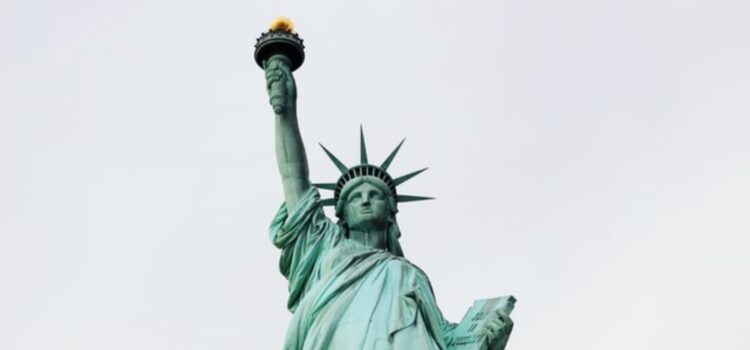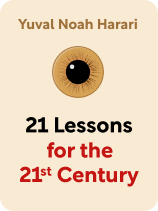

This article is an excerpt from the Shortform book guide to "21 Lessons for the 21st Century" by Yuval Noah Harari. Shortform has the world's best summaries and analyses of books you should be reading.
Like this article? Sign up for a free trial here .
What are the values that underpin the political ideology of liberalism? Why is liberalism becoming irrelevant as technology advances?
The ideology of liberalism—which values personal freedoms, free trade, and free elections—is the dominant political model today. However, technological advances are transforming the political, social, and economic structures on which liberalism stands.
Keep reading to learn about the slow rise and the looming fall of the ideology of liberalism.
The Rise of Liberalism and the Ideology of Freedom
Political models have always served the purpose of providing a story to make sense of the world and an ideal future to work toward. That story depends on the political, economic, and social context at the time. As a result, there have been several times throughout human history when the political model of the day became irrelevant and needed to be replaced.
Feudalism and monarchism were the reigning political models until the Industrial Revolution created such upheaval in economics and politics that those models no longer fit. In response, in the 1900s, elites around the world developed three new political stories, each of which offered a different way of making sense of the world and shaping the future:
- The fascist story: There have been tensions and struggles among nations throughout history. In an ideal future, one nation flexes its power over all others, but violence is likely.
- The communist story: There have been tensions and struggles among economic classes throughout history. In an ideal future, a universal social system provides for everyone equally, but people wouldn’t have liberty.
- The liberal story: There have been tensions and struggles between freedom and tyranny throughout history. In an ideal world, everyone works together with little government intervention, but inequality is inevitable.
World War II struck down the fascist story. By the end of the 1980s, the communist story also unraveled. Through the 1990s and early 2000s, liberalism was the primary story that people used to understand the world around them. The ideology of liberalism promoted individual freedoms as the keys to resolving all major societal issues, including poverty, oppression, and violence—through free trade, low taxes, free elections, peaceful international relations, rights for minority groups, and pro-immigration policies. In the U.S., although Democrats are associated with liberalism and Republicans with conservatism, politicians on both sides of the aisle held liberal views, merely in different forms.
However, after the 2008 global financial crisis, people became disillusioned with the liberal view of the world. Liberal desires to protect the free global flow of products, people, and ideas fell out of favor, and nations began pushing back against immigration and trade agreements. With the fall of liberalism, people around the world find themselves with no political story to interpret current events and plan for future challenges, such as climate change and technological advancements. Technological disruptions and a changing economic system have also played parts in making liberalism obsolete.
The Dual Rise of Infotech and Biotech
The ideology of liberalism was developed to fit the social, political, and economic context of the Industrial Era, but the massive technological innovations that have arisen since the 1990s have made the liberal story irrelevant. For example, the Industrial Revolution created an economy that was dependent upon a mass of unskilled workers. By contrast, now, it’s likely that artificial intelligence (AI) will eventually eliminate many jobs, and cryptocurrencies are dramatically changing the financial system.
Specifically, parallel revolutions in infotech and biotech are transforming societies and economies as well as individuals’ minds and bodies. First, in contrast to the relatively straightforward innovations of the Industrial Era, technological advancements are becoming too complex for most people to understand. As a result, people are uninformed about how machines are changing the labor market and algorithms are influencing the way they think, shop, and vote. Many people feel disconnected and left behind by new technologies, and they worry about becoming irrelevant in a changing labor market.
However, it’s critical to the future of the globe that people understand and participate in the changes happening around them. Even politicians are struggling to grasp the effects of these tech revolutions, despite the fact that they pass laws governing their effects, such as how to manage the collection and use of Big Data.
Second, the biotech and infotech revolutions are allowing humans to alter their own bodies, which could have unknown consequences. Before these revolutions began, humans developed technology to alter the external world—for example, by building a dam to change a river’s course. Because people did not consider the long-term effects, the world is now facing climate change as a result of humans’ massive changes to the planet. Now, technology is being developed to alter humans’ internal worlds, such as slowing or stopping the aging process through bioengineering. If people again fail to consider the long-term consequences, these internal changes could have major effects on individuals’ psychological well-being and the way society functions collectively.
Abandoning the Ideology of Liberalism
Most of the people who are disillusioned with liberalism today don’t disagree with all liberal ideals—rather, they want to do away with the global aspects of liberalism, and keep only the national ones:
- From an economic standpoint, people may still support free markets and low taxes, but not free trade and low tariffs.
- From a political standpoint, people may still support free elections and minority rights, but not multilateral cooperation and international laws.
- From a personal standpoint, people may support diversity and gender equality, but not immigration.
However, the national and global values of liberalism are interconnected. For example, you can’t promote consumer rights to the free market without also supporting international trade. Increasing support for national over global policies led to the election of Donald Trump and the vote for Brexit in 2016. Both political movements tapped into a desire to return to an imagined past golden era (as evidenced by the “Make America Great Again” slogan)—but this approach is unlikely to prepare the world for the completely new territory ahead.
At present, the ideology of liberalism is superior to the alternative political stories that currently exist (such as authoritarianism), but it still doesn’t offer answers for our most pressing modern challenges: climate change and technological disruptions. When people reach the other side of this phase of disillusionment with liberalism, they must either adapt an old political model to modern times or create a new one in order to have a roadmap for navigating present and future challenges.

———End of Preview———
Like what you just read? Read the rest of the world's best book summary and analysis of Yuval Noah Harari's "21 Lessons for the 21st Century" at Shortform .
Here's what you'll find in our full 21 Lessons for the 21st Century summary :
- What the unique challenges of the 21st century are and will be
- Why religion can't solve these 21st-century challenges
- How algorithms like Netflix recommendations are teaching you not to trust yourself






